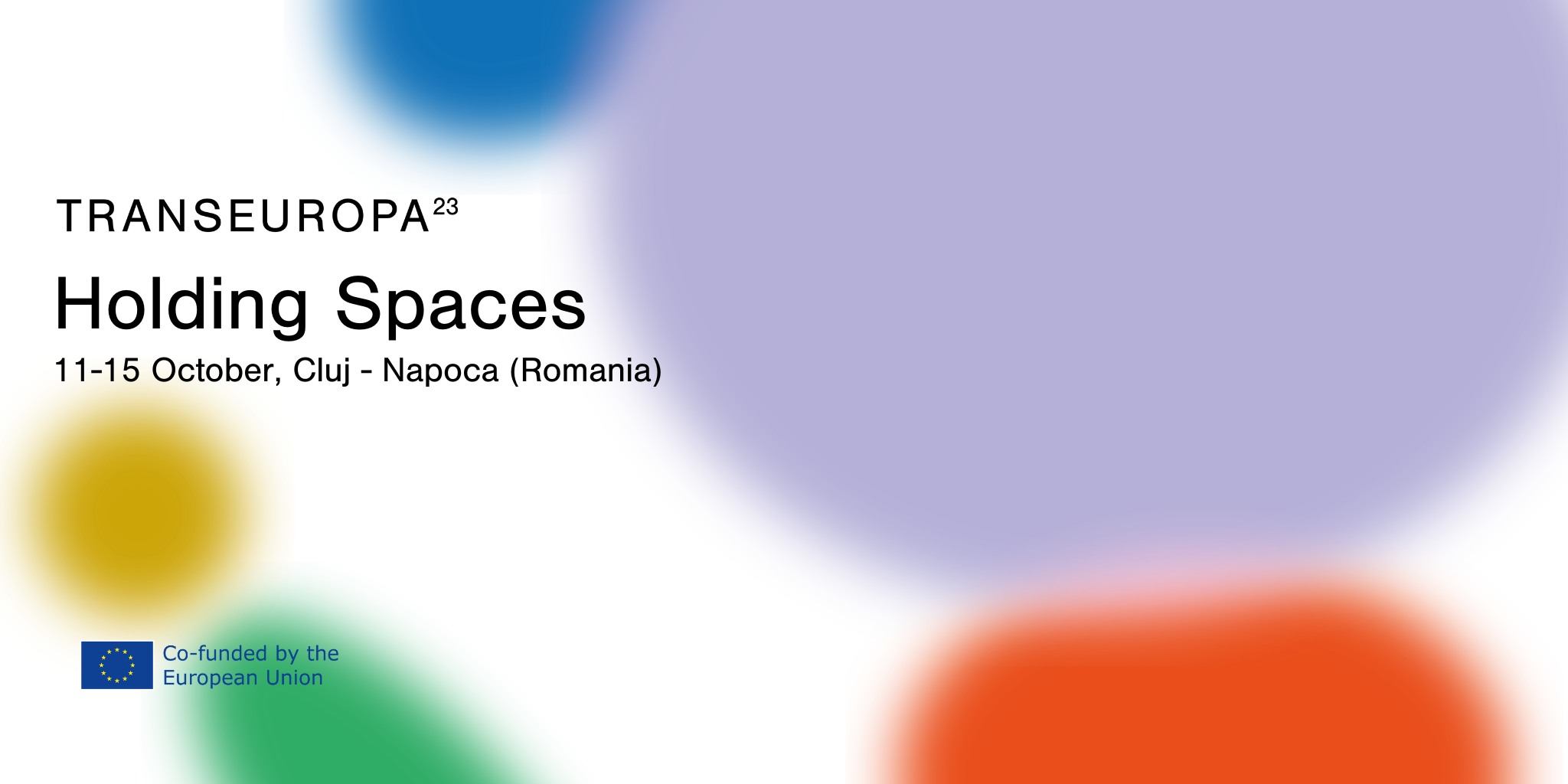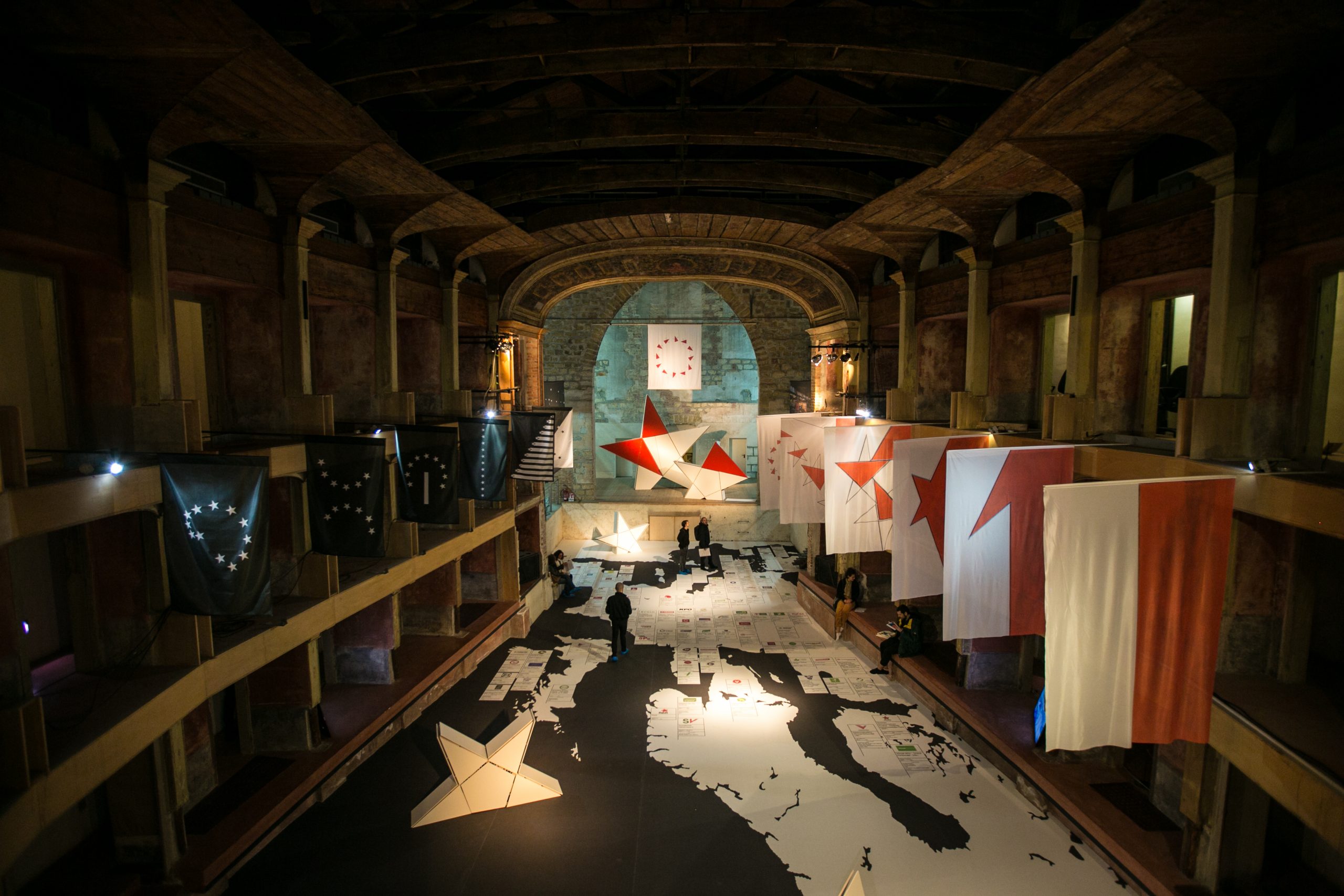Sep 6, 2023
Transeuropa Festival in Cluj Napoca! 11-15 October
The new edition of Transeuropa Festival will take place in Cluj Napoca and presents a rich schedule of events prepared in cooperation with local partners in the city. The programme will consist of events, exhibitions, open assemblies, meetings and music and will involve a large number of historical spaces of the city.
THE THEME
This year’s edition of the TRANSEUROPA festival asks participants first and foremost, what kind of environment do they want to live in? When we think about the ideal environment, about where we want to live, how we want to shape the world around us, we think far into the future, about our grandchildren and about what the world will be like in a hundred years’ time. When we look that far ahead, everything we imagine becomes elusive, everything seems to be fiction, guesswork, a possibility. For us, working with imagination and fantasy is of great value, because it inspires and motivates us, and is often a remedy for the harsh reality. However, we also think it is important to try to think together about these issues in the near future, to imagine how we imagine our own environment in, say, five or ten years’ time.
It is also an important question to consider how we share spaces with each other and with other species. Which spaces are accessible to whom, and which communities and groups are constantly excluded, what can we do to create spaces that are inclusive? When we think about who, we often forget that there are living beings outside the human species. Where are the spatial boundaries between the spaces used by humans and the animal kingdom? How can we ‘rewild’ spaces? After all, humans may have got to the top of the pyramid by domesticating their environment. They created artificial spaces for their own comfort and safety. And everything that humanity has touched has the imprint of artificiality on it.
The planet is divided into two parts, one by the presence of the human race, and the other by everything else we call nature. At the same time we have to think about what we do with artificial intelligence, what we think about programs, robots, and cyborgs. What we want to use these creatures for, and how much space and freedom we want to give them. Of course, it is also very important to look at what we think about the human race. What kind of systems do we think in, how many kinds and types of identities can we identify with, how open are we to, for example, contemporary witchcraft?
Can we determine for whom certain physical spaces are available? Are these spaces really available? Is this just an illusion? How aware are we of who created these spaces and with what intentions? In which direction do these spaces change, in which direction do the intentions change? Whose needs are decisive? When we talk about a particular physical space, we must also take into account that there are simultaneously many spaces that are no longer visible. At the same time, possible alternatives to space are all present. Can we grasp the multidimensionality of spaces? Can we deal with it consciously? Underneath the tons of concrete is earth. And the blades of grass are breaking through this hard concrete and coming out from underneath, just like the past.
It is important to re-examine the values that are important to us and that should reclaim not only physical spaces, but also virtual spaces and meta spaces.
The motto of this year’s edition is “Holding Spaces”. Holding spaces is important not only in a physical sense, but also in a symbolic sense. It is important to re-examine the values that are important to us and that should reclaim not only physical spaces, but also virtual spaces and meta spaces. We must reclaim not only the spaces of our habitat, but the space of discourse, the space of understanding, the space of caring, the space of learning, the space of change.

